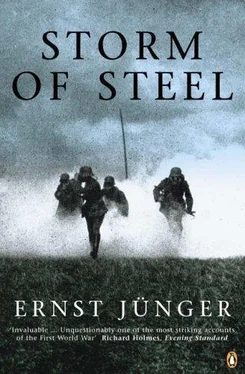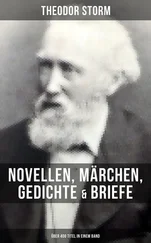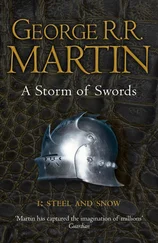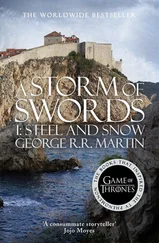To his horror, Clement calmly replied: ‘Quant a moi, j’aimerais mieux la garder,’ [‘Why don’t you just cut his throat with it!’. ‘If it’s all one to you, I’d just as soon hang on to it.’] showing the kind of sang-froid that a warrior ought to have.
In mid-February, we of the 73rd felt consternation to hear of heavy losses taken by the regiment at Perthes, and felt desperate to be so far from our comrades at the time. The fierce defence of our sector of the front in that ‘witches’ cauldron’ got us the sobriquet ‘The Lions of Perthes’ that was to accompany us wherever we went on the Western
Front. Besides that, we were also known as ‘Les Gibraltars’, on account of the blue Gibraltar colours we wore in memory of the regiment from which we traced our descent, the Hanoverian Guards, who defended the island fortress against the French and Spanish from 1779 to 1783.
The heavy news reached us in the middle of the night, as we were carousing as usual under the eye of Lieutenant Hoppe. One of the revellers, ‘Beanpole’ Behrens, the selfsame man who had dropped the captain off to bed in the cowshed, wanted to walk out the instant he heard, ‘because the beer had lost its taste’. Hoppe held him back, observing that to do so would be unsolddierly. And Hoppe was right too; he himself fell a few weeks later at Les Eparges, in front of his company’s extended line.
On 21 March, following a little exam, we were returned to our regiment, which was once more at Bazancourt. Then, following a big parade and a valedictory address from General von Emmich, we left the 10th Army Corps. On 24 March, we were put on trains and taken towards Brussels, where we were amalgamated with the 76th and 164th Regiments, to form the IIIth Infantry Division, which is what we remained till the end of the war.
Our battalion was billeted in the little town of Herinnes, set in a cosy Flemish landscape. On 29 March, I celebrated my twentieth birthday.
Although the Belgians had room enough in their houses, our company was installed in a large and draughty barn, which the cutting sea wind whistled through on the cold March nights. That apart, our stay in Herinnes was quite restorative, with plenty of drill, but good victualling, and the food also very cheap to buy.
The half-Flemish, half-Walloon population was very friendly. I had frequent conversations with the owner of one particular estaminet, a keen Socialist and freethinker of a distinctively Belgian type. On Easter Sunday, he invited me to lunch, and would take no money, even for what we drank. Before long, all of us had struck up our various friendships and relationships, and on our afternoons off we could be seen striding through the countryside, making for this or that farmstead, to take a seat in a sparkling clean kitchen round one of the low stoves, on whose round tops a big pot of coffee was kept going. We chatted away in a blend of Flemish and Lower Saxon.
Towards the end of our stay, the weather improved, and we happily went for walks in the attractive, rather watery countryside. The landscape, in which yellow marsh marigolds seemed to have sprouted overnight, was set off by the sight of numbers of half-naked soldiers along the poplar-lined river banks, all with their shirts over their knees, busily hunting for lice. Fairly unscathed myself thus far by that scourge, I helped my comrade Priepke, an exporter from Hamburg, wrap his woollen waistcoat – as populous as once the garment of the adventurous Simplicissimus [Eponymous hero of the novel by Grimmelshausen (1622-1676), a picaresque set during the Thirty Years War.] – round a heavy boulder, and for mass-extermination, dunk it in the river. Where, since we left Herinnes very suddenly, it will have mouldered away quietly ever since.
On 12 April 1915, we were put on trains at Hal, and, to mislead any possible spies, took a wide detour across the northern part of the front to the battlefield of Mars-la-Tour. In the village of Tronville, the company moved into its customary barn quarters, in a boring and squalid dump typical of the Lorraine, put together from flat-roofed, windowless stone crates. Because of the danger from aeroplanes, we were forced to stay in the crowded township most of the time; once or twice, though, we managed to get to the renowned nearby sites of Mars-la-Tour and Gravelotte. Only a few hundred yards away from the village, the road from
Gravelotte crossed the frontier, where a smashed French border marker lay on the ground. In the evenings, we sometimes took melancholy satisfaction from going on walks to Germany.
Our barn was so ramshackle that you had to pick your way carefully over the joists if you weren’t to crash through the mouldy planking on to the threshing-floor beneath. One evening, as our unit, under our decent Corporal Kerkhoff, was busy doling out portions on a manger, a huge lump of oak detached itself from the rafters and came crashing down. It was pure chance that it stuck fast a little way over our heads in the crook of two walls. We were more frightened than hurt; only our precious meat portions lay covered in rubble and debris. Then, no sooner had we crawled into the straw after this ill omen, than there was a pounding on the gate, and the alarming voice of the sergeant-major got us out of our resting-places in no time. First off, as always with these surprises, there was a moment of silence, then total confusion and din: ‘My helmet!’
‘Where’s my haversack?’
‘I can’t get into my boots!’
‘You stole my ammunition!’
‘Shut up, August!’
In the end, we were all ready, and we marched off towards the station at Chamblay, from where a train took us, minutes later, to Pagny-sur-Moselle. The next morning, we were climbing the hills of the Moselle, and stopped in Preny, a charming hill village, with the ruins of a chateau looming over it. Our barn this time turned out to be a stone construction filled with fragrant mountain hay. Through its window-slits we had a view out over the wine-grown slopes of the Moselle, on to the little valley town of Pagny, which was regularly targeted by shells and aerial bombardment. Several times, shells landing in the river brought up vast columns of water.
The balmy spring weather was enlivening, and spurred us on to long walks in the wonderful hill country. So exuberant were we that we carried on larking about long into the evening, before finally settling to sleep. One much-loved prank was pouring water or coffee from a canteen into a snoring sleeper’s mouth.
On the evening of 22 April, we marched out of Preny and covered over twenty miles to the village of Hattonchatel, without registering any footsoreness, in spite of our heavy packs. We pitched camp in the woods on the right of the famous Grande Tranchee. All the indications were that we would be fighting in the morning. Bandage packs were issued, extra tins of beef, and signalling flags for the gunners.
I sat up for a long time that night, in the foreboding eve of battle mood of which soldiers at all times have left report, on a tree stump clustered round with blue anemones, before I crept over the ranks of my comrades to my tent. I had tangled dreams, in which a principal role was played by a skull. In the morning, when I told Priepke about it, he said he hoped it was a French skull.
The tender green of young leaves shimmered in the flat light. We followed hidden, twisting paths towards a narrow gorge behind the front line. We had been told that the 76th was to attack after a bombardment of only twenty minutes, and that we were to be held in reserve. On the dot of noon, our artillery launched into a furious bombardment that echoed and re-echoed through the wooded hollows. For the first time, we heard what was meant by the expression ‘drumfire’. We sat perched on our haversacks, idle and excited. A runner plunged through to the company commander. Brisk exchange. The three nearest trenches have fallen to us, and six field guns have been captured!’ Loud cheers rang out. A feeling of up-and-at-’em.
Читать дальше












